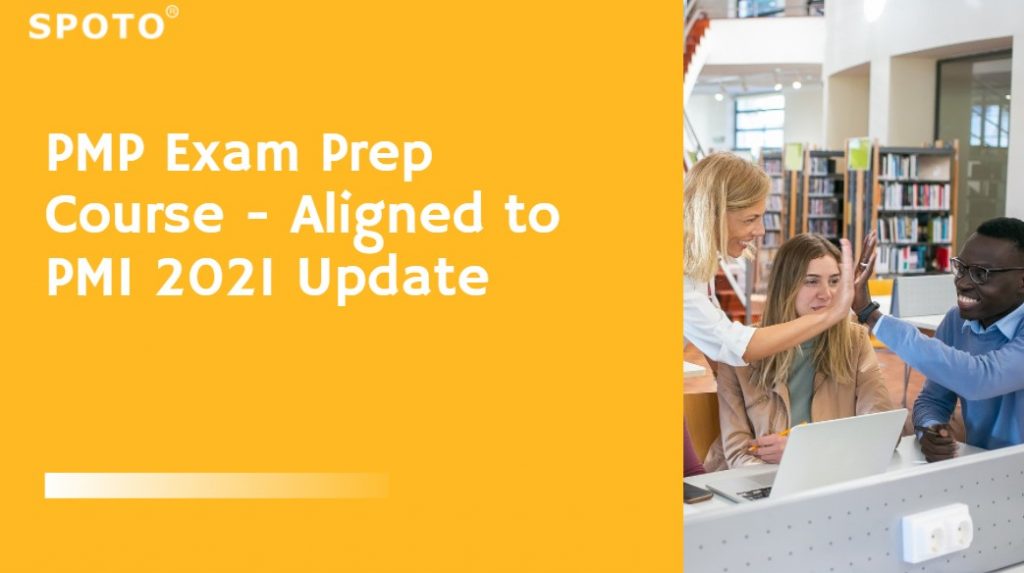Project management professionals (PMPs) are in high demand across all industries. That hasn’t changed in a long time, but technology is changing the project manager’s role. Enter the most recent PMP exam and the PMBOK Guide, version 7.
To become a PMP and join the ranks of the growing demand for top-tier talent, you must first pass the rigorous exam. The new PMBOK 7 guide will be available in August. Simplilearn has been designated as an Authorized Training Partner in this regard.
The new PMP exam changes were supposed to go into effect in July 2020, but they were postponed due to the COVID-19 pandemic. As a result, studying for the PMP exam required a different approach because significant changes to it were implemented on January 2nd, 2021.
The only constant in life changes and a career in project management is no exception. As a result, every three to five years, the Project Management Institute (PMI®) conducts extensive research to better understand how the profession has evolved. The PMI determines what knowledge should be tested based on an in-depth analysis of the ever-changing roles and responsibilities of certified project managers.
The new PMP exam changes that went into effect in early 2021 are based on research recommendations from 2019. Knowing and comprehending the upcoming changes is critical for best preparation for the PMP exam.
Three Significant Changes to the New 2021 PMP Exam
PMP Exam Structure
ATP Exam Preparation PMP Exam Content
Let’s take a closer look at how these changes will affect students pursuing their PMP certification in 2021 and beyond!
Here is a complete list of changes to help you prepare for the PMP exam.
PMP Exam Structure
Changes to the exam format may appear minor, but understanding how your knowledge and experience will be tested is critical to your PMP exam preparation. The 2015 version of the exam included 200 multiple-choice questions covering the five project management domains. The questions on the PMP exam were formula-based, situational, and knowledge-based.
The updated three domains will be covered by 180 questions on the new PMP exam, which will be a combination of multiple-choice, multiple response, matching, hotspot, and fill in the blank.
To accurately test candidates’ agility, the latest PMP exam includes more scenario-based questions with animations to best test candidates’ flexibility and soft skills.
While studying for the PMP exam, go over the Agile Practice Guide to get ready for questions about both agile and hybrid approaches.
PMP Exam Topics
The most significant changes that students can expect when studying for the PMP exam are in the exam’s content.
Though both the 2015 and 2021 exam versions divide the content into domains, the number and nature of the domains have changed dramatically over the last five years. While the previous exam focused on specific stages of project management — initiating, planning, executing, monitoring, and closing — the new exam focuses on broader topics like people, process, and business development.

Here’s a closer look at the changes to help you prepare for the PMP exam:
The Previous 2015 Exam
The previous PMP exam version organized its questions into the following PMP domains, following the natural flow of project management:
Starting the project (weighted at 13 percent)
Organizing the project (weighted at 24 percent)
Carrying out the project (weighted at 31 percent)
The project is being monitored and controlled (weighted at 25 percent)
Project completion (weighted at 7 percent)
The New Exam for 2021
The job of a project manager is constantly evolving. The new PMP exam reflects changing occupational demands and will concentrate on three primary domains:
People
This domain, which accounts for 42 percent of the exam, assesses a candidate’s leadership of their project team. Among the tasks that have been evaluated are:
Creating and leading a team
Conflict Resolution
Ensure that your team is properly trained.
Process
The stage in the process where professionals evaluate the technical aspects of project management is worth half (50%) of the exam’s weight. Among the process tasks on the PMP exam are the following:
Budgeting and resource management
Integrating project planning activities
Managing Project Changes
Business Environment
This domain, which is significantly smaller (8 percent) in comparison to the other domains, assesses a project manager’s ability to adhere to organizational requirements. The following are some examples of tasks:
Planning and managing project compliance
Considering the project’s benefits and value
Supporting organizational transformations
To prepare for the PMP exam, review the entire 2021 content outline.
The Exam Will Be More Difficult
With so much new content on new topics and methods being released with PMBOK 7, it stands to reason that this new test will necessitate a broader range of study to cover everything. In short, there is a lot more to learn and master, so the exam will be objectively more difficult.
Contact Hours are a Minimum Requirement
The PMI requires 35 verified contact hours of “specific instruction that addressed learning objectives in project management.”
However, with the new, larger exam, 35 contact hours are now required. Expect in-depth exam preparation to take much longer.
Exam questions will be drawn from Agile and Hybrid Methodologies.
Approximately half of the new PMP exam questions now address agile and hybrid methodologies. This differs slightly from the previous exam in that the percentage of such questions is lower than it used to be. Keep this in mind as you prepare for the PMP.
Let us take a look at some study tips as part of the PMP exam preparation.





